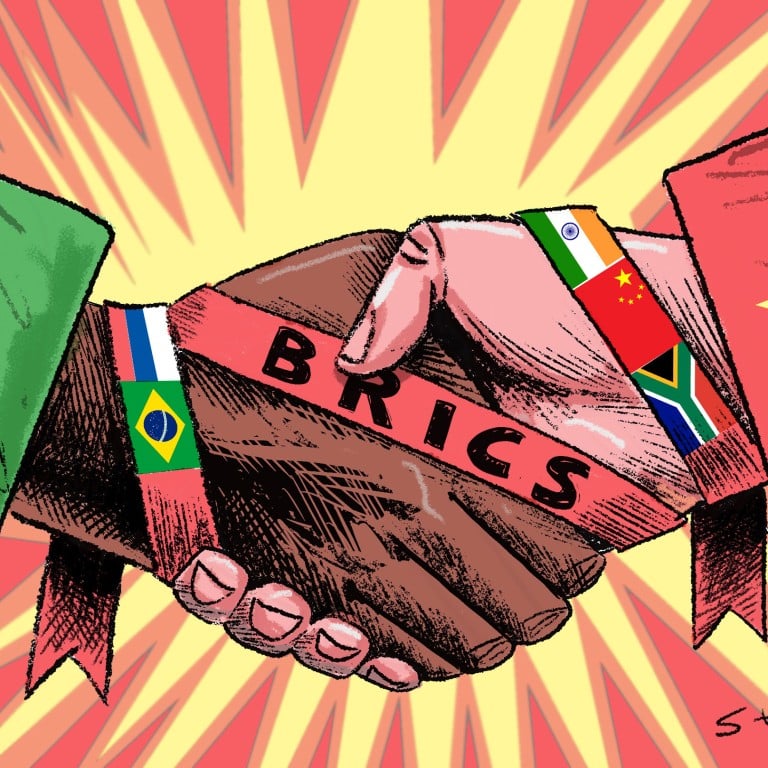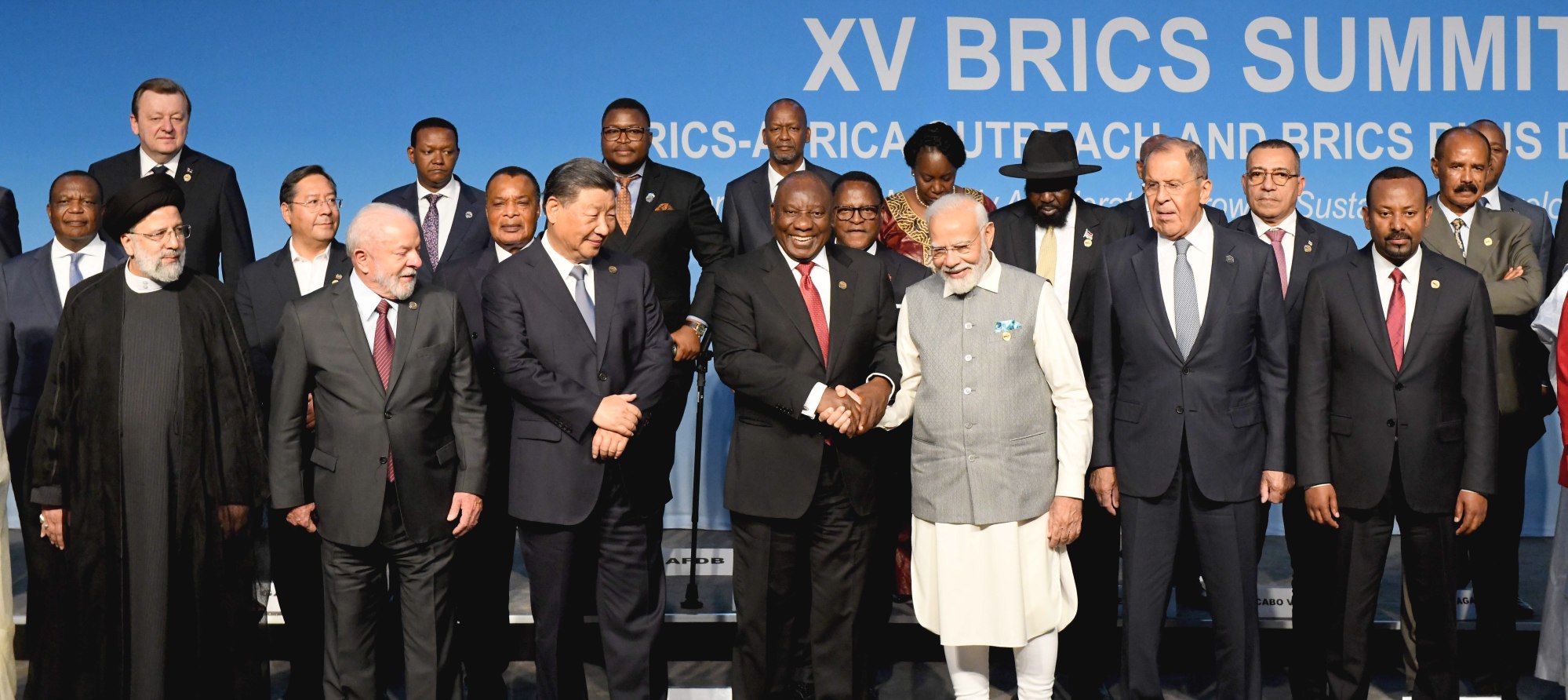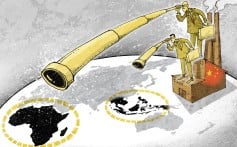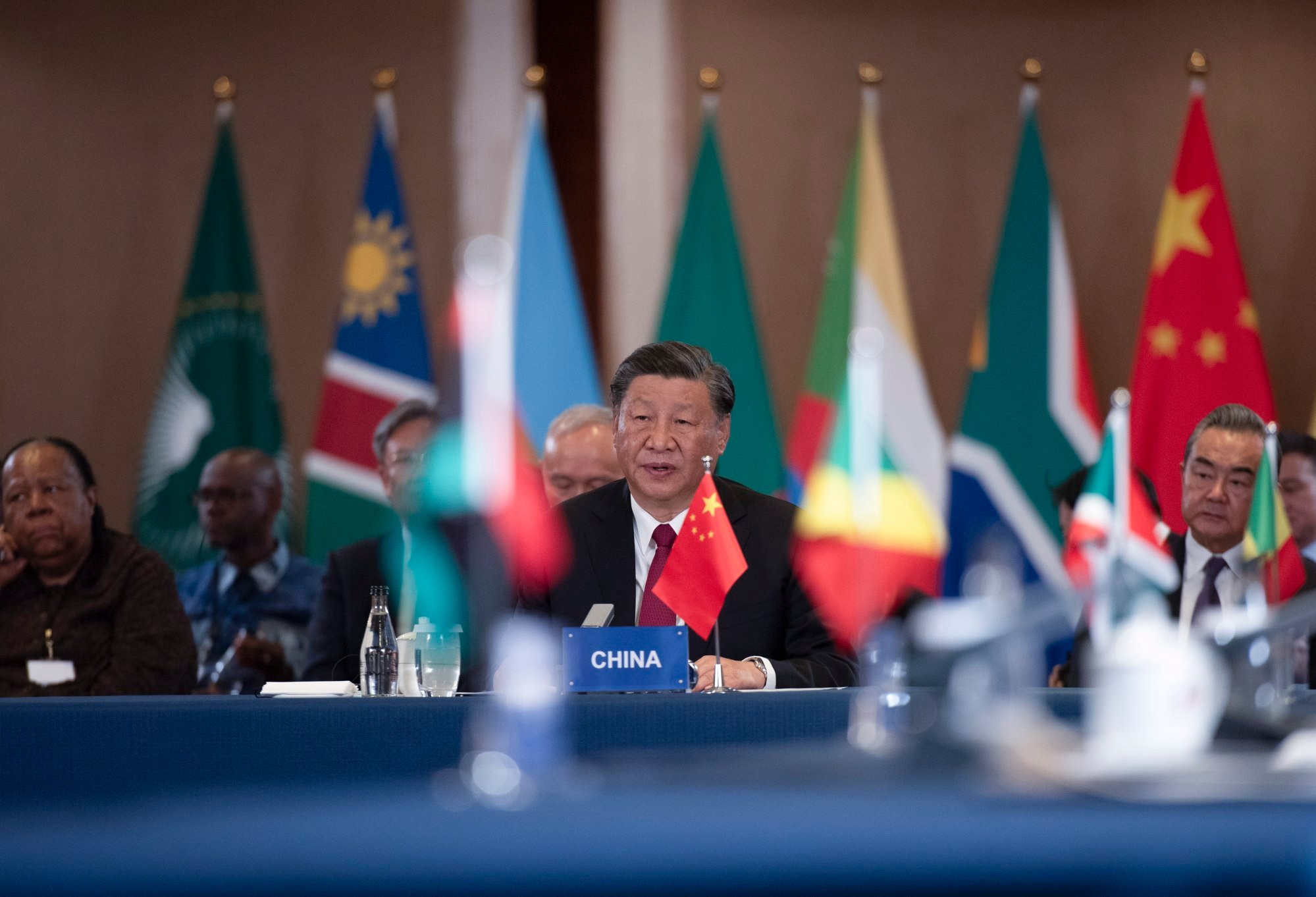Expanded Brics can help Africa deepen its ties with China and Asia

- Egypt and Ethiopia’s inclusion in the bloc now gives the continent three seats at the table, from which to leverage the development of the whole region
- A more united Global South will also be more forceful in pushing back against US pressure to fall in line with American foreign policy priorities

Saudi Arabia, the United Arab Emirates, Iran and Argentina are the other nations that have been invited to join the bloc next year.
Egypt chafes at the dominance of the US dollar in the international financial system and views it as impeding its economic development. The Russia-Ukraine war has bolstered the dollar viz-à-viz African currencies and raised the cost of importing goods and borrowing for the continent. Africa is currently witnessing the highest levels of public debt and inflation in decades, according to the International Monetary Fund.
Several African countries today suffer a shortage of US dollars in the trade market, among them Egypt. Consequently, the country’s supply minister, Ali Moselhy, has said that the country is exploring paying for its imports from China, Russia and India in their local currencies.
Africa’s economic ties with the Brics countries have grown over the years. In Johannesburg last week, 30 of the more than 60 government and state leaders who attended the Brics summit were from Africa. With Brics expanding its footprint in Africa, which has immense potential and a rich cultural diversity, the continent will enter a new era. Leveraging the countries’ collective strength through Brics will be a win-win partnership.

With Egypt and Ethiopia joining South Africa in Brics, it may even pave the way for African integration and increase the continent’s role in global geopolitics.
More immediately, it is hoped that the New Development Bank – a multilateral bank set up by the current Brics members of Brazil, Russia, India, China and South Africa – can help African nations deal with urgent challenges, particularly increasing levels of poverty following the eruption of the Ukraine war and the Covid-19 pandemic.
Africa’s greater representation in Brics will further strengthen the continent’s ties with China.
Kwame Nkrumah, the founding prime minister of Ghana, forecast in the 1960s that China’s rapid economic growth would provide an effective challenge to America’s industrial – and hence political – mastery of the capitalist world. He saw America’s “capitalist accumulations” as a product of large-scale plantation farming by slave labour and called on African nations to follow China’s path for development and industrialisation.

Africa’s economic potential has lured outside powers to invest in it. However, Africans should recognise that US interest in their continent are primarily driven by a desire to counter China. Getting on board the anti-China train would not benefit the continent – if China loses interest in Africa, it would jeopardise jobs and the economy.
Many of the Africans I chatted with in Cairo – be they Egyptians, Sudanese or Libyans – resent the notion of Africa falling victim to superpowers, or of being seen as a competition platform for outside powers. Yet, they show more preference towards China than Western powers.

Africans should keep looking East. America’s influence in Africa has weakened while that of China has increased. This has led to concern in Washington and pushed it to exercise pressure on African governments to distance themselves from Beijing and Moscow. Yet, Africans should ask: what have we gained from our alliance with the West apart from the robbing of the continent’s resources? Africa should continue to strengthen ties with China and Asia.
- Questions and Answers
- Opinion
- Motivational and Inspiring Story
- Technology
- Live and Let live
- Focus
- Geopolitics
- Military-Arms/Equipment
- Безопасность
- Economy
- Beasts of Nations
- Machine Tools-The “Mother Industry”
- Art
- Causes
- Crafts
- Dance
- Drinks
- Film/Movie
- Fitness
- Food
- Игры
- Gardening
- Health
- Главная
- Literature
- Music
- Networking
- Другое
- Party
- Religion
- Shopping
- Sports
- Theater
- Health and Wellness
- News
- Culture

